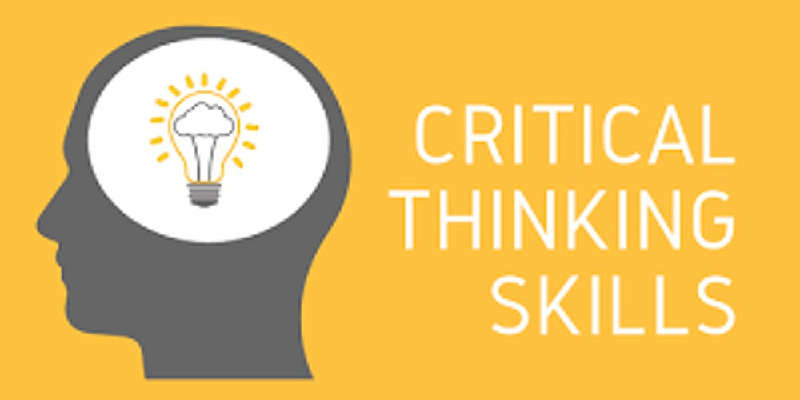Improving critical thinking skills through ICT (Information and Communication Technology) in English writing involves leveraging digital tools and resources to enhance analytical reasoning, problem-solving, and decision-making abilities. ICT provides access to vast amounts of information, diverse perspectives, and collaborative platforms that encourage students to evaluate, synthesize, and communicate ideas effectively. By integrating ICT into English writing instruction, educators can cultivate students’ abilities to analyze complex texts, critique arguments, and develop evidence-based responses. Moreover, ICT facilitates interactive learning experiences that challenge students to engage critically with digital media, differentiate between credible and biased sources, and construct well-reasoned arguments supported by textual evidence and multimedia resources.

Access to Information and Diverse Perspectives
ICT enables students to access a wide range of information sources beyond traditional textbooks, including online databases, digital libraries, scholarly articles, and multimedia resources. This access fosters critical thinking by encouraging students to evaluate the reliability, relevance, and credibility of information sources. Through guided research tasks and collaborative projects, students learn to navigate digital platforms effectively, discerning between primary and secondary sources and synthesizing information to form informed opinions and arguments in their English writing.
Analytical Skills Development
Engaging with ICT tools such as online analytical platforms, digital writing tools, and interactive learning modules enhances students’ analytical skills. These tools facilitate real-time feedback, data visualization, and comparative analysis, empowering students to interpret textual information, identify patterns, and draw logical summarys. By incorporating ICT into English writing tasks, educators can scaffold learning experiences that challenge students to critically evaluate narrative structures, rhetorical strategies, and the impact of language choices on meaning and audience perception.
Multimedia Integration and Digital Literacy
ICT promotes digital literacy by encouraging students to create and analyze multimedia texts, including videos, podcasts, infographics, and interactive presentations. Integrating multimedia elements into English writing assignments allows students to explore diverse modes of expression, experiment with visual and auditory rhetoric, and evaluate the effectiveness of multimedia in conveying messages and engaging audiences. Moreover, multimedia integration encourages collaborative learning and peer feedback, fostering a dynamic learning environment where students can critique and revise their work based on constructive criticism and diverse perspectives.
Problem-Solving and Decision-Making
ICT facilitates problem-solving and decision-making skills through simulated scenarios, case studies, and virtual learning environments. Engaging with interactive simulations and online platforms enables students to apply critical thinking to real-world challenges, analyze complex situations, and propose viable solutions. In English writing contexts, ICT supports students in crafting persuasive arguments, evaluating multiple viewpoints, and advocating for informed positions supported by evidence and logical reasoning. By simulating authentic writing tasks and collaborative projects, educators can cultivate students’ ability to formulate well-rounded arguments, anticipate counterarguments, and revise their writing based on peer feedback and self-reflection.
Collaboration and Communication Skills
ICT enhances collaboration and communication skills by enabling students to participate in virtual discussions, peer reviews, and collaborative writing projects. Through online forums, video conferencing tools, and collaborative editing platforms, students can engage in meaningful exchanges of ideas, provide constructive feedback, and co-create texts with peers from diverse cultural and linguistic backgrounds. Collaborative writing tasks foster teamwork, empathy, and respect for differing viewpoints, preparing students to navigate complex interpersonal dynamics and communicate effectively in digital and globalized contexts.
Vote
Who is your all-time favorite president?
Ethical Considerations and Digital Citizenship
Integrating ICT into English writing instruction necessitates addressing ethical considerations and promoting digital citizenship. Educators play a crucial role in guiding students to critically evaluate information sources, respect intellectual property rights, and uphold principles of academic integrity in their research and writing practices. By fostering a culture of responsible digital citizenship, educators empower students to use ICT ethically, safeguard personal privacy, and contribute positively to online communities while navigating potential risks such as misinformation, cyberbullying, and digital plagiarism.
In summary, integrating ICT into English writing instruction enhances critical thinking skills by providing students with access to diverse information sources, fostering analytical skills development, promoting digital literacy through multimedia integration, facilitating problem-solving and decision-making, enhancing collaboration and communication skills, and addressing ethical considerations and digital citizenship. By leveraging ICT tools and resources effectively, educators can create dynamic learning environments that prepare students to thrive in a digitally interconnected world, equipped with the critical thinking skills necessary for academic success and lifelong learning.